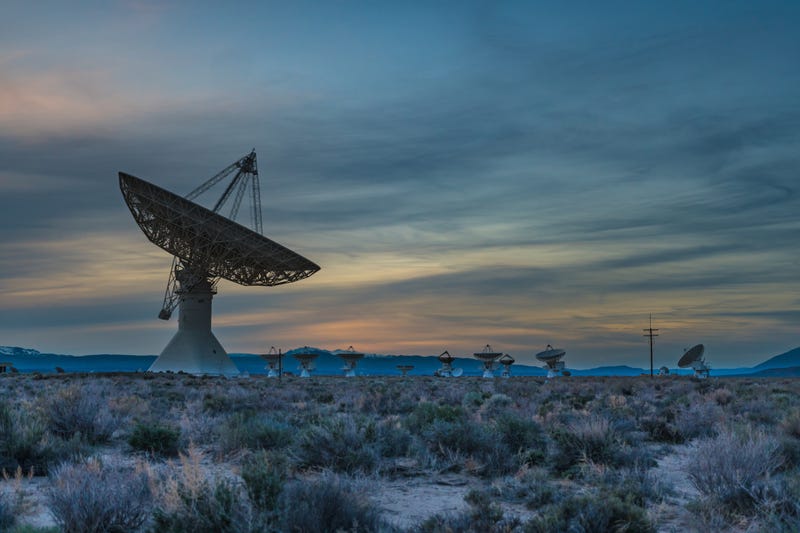
Will humans ever make contact with aliens? If it happens, a group of scientists want to make sure we're ready.
Scientists with the University of St. Andrews in Scotland are working on an official "alien contact protocol" for what to do if aliens ever communicate with Earth.
Coordinator John Elliott says it's important to be prepared "scientifically, socially, and politically" for a potential alien encounter "that could turn into reality as early as tomorrow."
"Science fiction is awash with explorations of the impact on human society following discovery of, and even encounters with, life or intelligence elsewhere," Elliott said in a statement. "But we need to go beyond thinking about the impact on humanity. We need to coordinate our expert knowledge not only for assessing the evidence but also for considering the human social response, as our understanding progresses and what we know and what we don't know is communicated. And the time to do this is now."
The international effort, known as the SETI Post-Detection Hub, involves bringing together diverse expertise across both the sciences and the humanities for setting out impact assessments, protocols, procedures, and treaties designed to enable a responsible response.
SETI, Search for Extra-Terrestrial Intelligence, is a collective term for scientific searches for intelligent extra-terrestrial life.
"Will we ever get a message from E.T.? We don't know. We also don't know when this is going to happen. But we do know that we cannot afford to be ill prepared – scientifically, socially, and politically rudderless – for an event that could turn into reality as early as tomorrow and which we cannot afford to mismanage," Elliott said.
The SETI Post-Detection Hub for the first time provides a permanent "home" for coordinating the development of a fully comprehensive framework, drawing together interested members from academic communities as well as policy experts to work on topics ranging from message decipherment and data analytics to the development of regulatory protocols, space law, and societal impact strategies.
Currently, the only existing agreed contact protocols are those drawn up by the SETI community itself in 1989, which were last revised in 2010. According to Elliott, the protocols focus entirely on general scientific conduct and fall short of being useful for managing in practice the full process of searching, handling candidate evidence, confirmation of detections, post-detection analysis and interpretation, and potential response.
The SETI Post-Detection Hub is expected to close a "substantial policy gap and will also consider responsible science communication in the social media era."
The SETI Post-Detection Hub is an initiative of the UK SETI Research Network (UKSRN), and is jointly hosted by the St. Andrews Centre for Exoplanet Science and the Centre for Global Law and Governance.
Follow KNX News 97.1 FM
Twitter | Facebook | Instagram | TikTok



